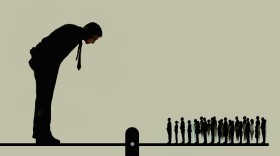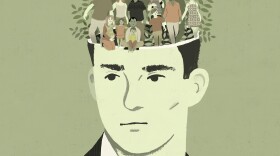
Tara Boyle
Tara Boyle is the supervising producer of NPR's Hidden Brain. In this role, Boyle oversees the production of both the Hidden Brain radio show and podcast, providing editorial guidance and support to host Shankar Vedantam and the shows' producers. Boyle also coordinates Shankar's Hidden Brain segments on Morning Edition and other NPR shows, and oversees collaborations with partners both internal and external to NPR. Previously, Boyle spent a decade at WAMU, the NPR station in Washington, D.C. She has reported for The Boston Globe, and began her career in public radio at WBUR in Boston.
-
This week on the Hidden Brain radio show, we dig into the culture and psychology that determines the foods that make us salivate and the scents that make us squirm.
-
We all know the downsides of being poor. But what about the downsides of being rich? This week, we explore the psychology of scarcity...and excess.
-
Decades ago, a group of women accused a prominent playwright of sexual misconduct. For the most part, the complaints went nowhere. In 2017, more women came forward. This time, people listened.
-
This week on Hidden Brain's radio show, we tackle a big topic: power. From our conflicted feelings toward the powerful, to the ways we gain and lose power ourselves, and how power can corrupt.
-
How many ads have you encountered today? On this week's radio replay, we discuss the insidiousness of advertising in American media.
-
Violent crimes committed by Muslims are much more likely to be reported as "terrorism." And that has disturbing consequences for the way Muslims are perceived.
-
Have you ever noticed that when something important is missing in your life, your brain can only seem to focus on that missing thing? Two researchers have dubbed this phenomenon "scarcity."
-
Boys get the message quickly: a man is supposed to be strong and independent. That message, researchers say, has widespread consequences for men's social lives and physical health.
-
A culture of racism can infect us all. On this week's radio show, we discuss the implicit biases we carry that have been forged by the society around us.
-
Our culture has long expected that women will be kind, and leaders will be authoritative. So what's a female leader to do when she confronts these conflicting stereotypes?










